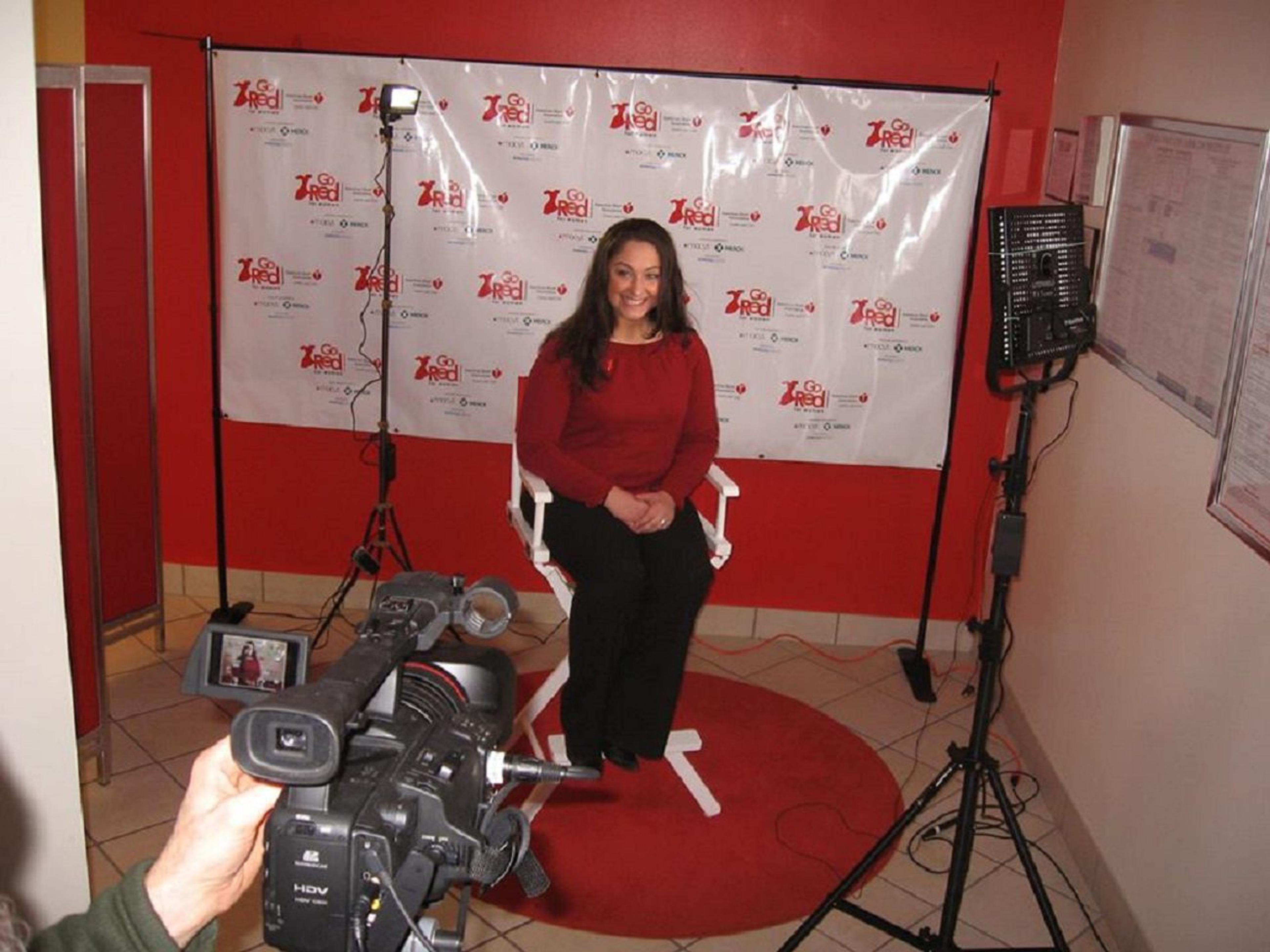After Surviving a Stroke at Age 26, Woman Emphasizes Heart Health at Every Age
Amy Barczy
| 5 min read
Amy Barczy is a former brand journalist who authored content at Blue Cross Blue Shield of Michigan. Prior to her time at Blue Cross from 2019-2024, she was a statewide news reporter for MLive.com. She has a decade of storytelling experience in local news media markets including Lansing, Grand Rapids, Holland, Ann Arbor and Port Huron.

At the age of 26, Georgia Leventis-Molina could not believe she had a stroke and would need open heart surgery. She led a busy, active life in Kalamazoo – attending classes, newly married, being a mom to her 10-year-old stepson and logging 13,000 steps a day as a server in the hospitality industry. She had been a vegetarian since the sixth grade, and loved to snowboard, golf and walk dogs – and had never needed to go to the hospital before. It began when she hurt her back at work: the intense pain sent her to the emergency room, and they kept sending her home because they couldn’t figure out what was wrong. One day she woke up and couldn’t see straight – and couldn’t walk up the stairs. Her husband knew something was terribly wrong and rushed her to the emergency room.
A month in the hospital
The doctors said she was having a stroke. They discovered she had an infection, bacterial endocarditis, which caused a septic embolism. A piece of her heart had become infected and broke off into her blood stream, causing the stroke. Doctors put Georgia into an induced coma for a week. The infection majorly damaged her heart, and she needed open heart surgery to repair her valves. During the procedure the surgeons discovered she had a congenital heart defect – a small hole in her heart – and they fixed that as well.
Georgia Leventis-Molina After a month in the hospital, Georgia recovered well: doctors told her that was thanks to her youth, active lifestyle, good diet and the swift action of her husband to get her to the hospital quickly when she was showing the signs of a stroke. Now, Georgia is an advocate for heart health at every age. “I don’t think people should wait until they have a problem. Get an EKG, get a stress test,” said Georgia, who is a Blue Cross Blue Shield of Michigan member. “Your heart health should be just as important as your yearly physical.” Women in their 30s and 40s are more than twice as likely to die from cardiovascular disease than breast cancer, according to the American Heart Association. Yet, many women in younger generations – like Gen Z and millennials – are less likely to be aware of the warning signs of heart attacks and strokes. An easy way to remember the warning signs of stroke is to use the acronym F.A.S.T.:
- Face drooping
- Arm weakness
- Speech difficulty
- Time to call 911
Additional symptoms of stroke include:
- Sudden weakness or numbness of the face, arm and leg, especially on one side of the body
- Sudden confusion, trouble speaking or understanding
- Sudden trouble seeing in one or both eyes
- Sudden trouble walking, dizziness, loss of balance or coordination
- Sudden severe headache with no known cause
Recovering mentally and physically
The first year after the stroke and surgery, Georgia said she was in a funk. After going through the scare of being extremely sick, being on a ventilator and having open heart surgery, she now faced extreme depression and post-traumatic stress.
Georgia Leventis-Molina “You think you survive something like that, and you should be happy,” Georgia said. “You are happy you survived, and you’re grateful, but then you have memories of how you felt and certain triggers like smells.” While Georgia was able to recover physically, her mental recovery was its own challenge. She started seeing a therapist and connected with the American Heart Association at an event for survivors to share their stories. “I just sobbed – I was just a mess,” Georgia said, remembering the flood of emotion she experienced at connecting with others that understood the difficulty of suddenly being in the hospital for a month with a serious heart problem at the age of 26. The American Heart Association connected her to others that have had their own heart health journeys. Georgia calls them her “survivor sisters” – which is now a huge support network that’s just a call or text away when they need each other. “If it wasn’t for them, I don’t know where my life would be right now,” Georgia said. Depression after heart surgery is not uncommon: up to 25% of patients experience cardiac depression, according to the American Heart Association.
‘Be your own advocate’
Georgia’s stroke and open-heart surgery occurred in 2008. She has since made a great recovery – mentally and physically. Though her stroke has left her with some brain fog and slightly affected her vision and smile, Georgia said she’s learned how to get through the hard days. As the director of catering for Kitchen and Kegs Catering for Latitude 42 Brewing Company in West Michigan, Georgia uses her spare time to help other women recovering from heart surgeries to find their way forward. “Give yourself grace. You’re going to have bad days. Reach out for support,” Georgia said, giving advice to others recovering from a major medical procedure. “Be your own advocate when you go to your doctor. If you know something is wrong, let them know. Know the signs and symptoms of whatever it is that you went through.” Learn more about the American Heart Association at heart.org. More from MIBluesPerspectives:
- Preventive Care Appointments to Make in 2022
- Why Women are More Susceptible to Thyroid Disease
- 5 Reasons to See a Doctor When You're Healthy
Photo credit: Courtesy of the American Heart Association and Georgia Leventis-Molina.





